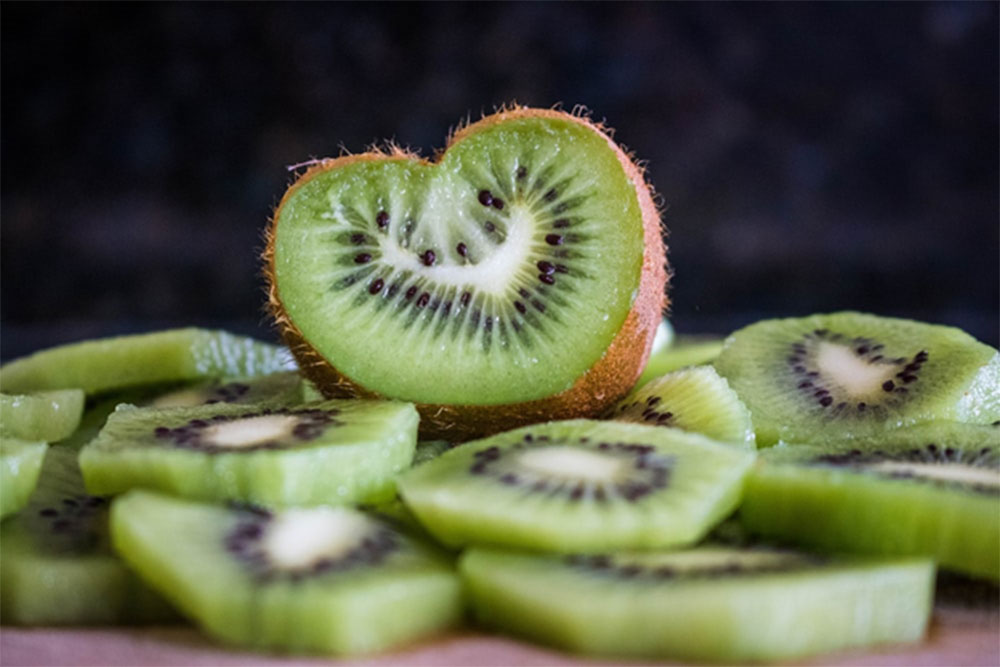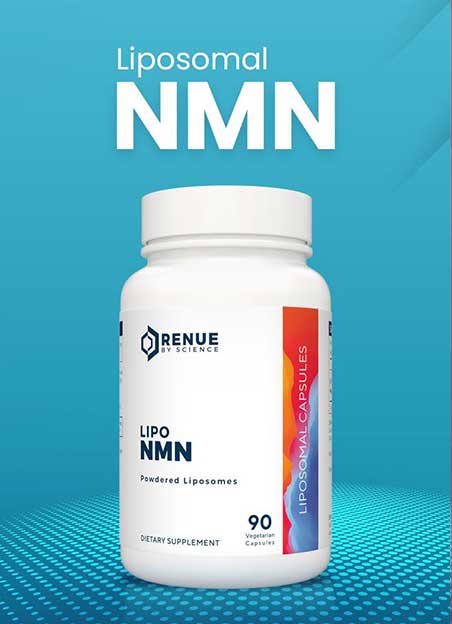Pyrroloquinoline quinone (PQQ) has been a focus of interest in health and wellness circles over the last few years. It has been claimed that PQQ supplements can increase longevity, mental focus, and energy levels in the human body. The question is whether there is any truth to these claims or not.
In this article, you will find scientific-based evidence of potential benefits, side effects, and frequently asked questions about PQQ.
What Exactly is PQQ?
PQQ is also known as methoxatin. It is a compound that exists in a range of foods and soil. It is most commonly found in human breastmilk, soybeans, kiwi, and spinach.
How it Works
How PQQ works in the human body is not completely understood, but it is famous for its antioxidant effects. It is a key part of a range of cellular processes, such as the protection of nerve cells.
Other than that, PQQ is also helpful in developing new mitochondria and supporting mitochondrial function. However, the exact mechanism through which it performs these tasks is not clear.
Mitochondria are considered the powerhouses of cells because they are the molecular structures that produce energy from the foods consumed by the human body.
PQQ Supplements
PQQ supplements have been classified as nootropics – a class of substances that augment brain functions like creativity, motivation, mental focus, and memory.
The manufacturing process of PQQ supplements involves a fermentation process where some bacteria naturally produce PQQ as a metabolic byproduct.
PQQ supplements can be generally found in the form of soft gels and capsules, but it is not uncommon to find them in the form of lozenges or chewable tablets.
Food Sources of PQQ
PQQ is found in a range of food sources, including many fruits and vegetables. Some of the major food sources of PQQ are as follows:
• Celery
• Spinach
• Papaya
• Tea
• Parsley
• Kiwi
• Green Peppers
• Natoo or Fermented soybeans
If you think that your PQQ requirements are not being fulfilled by the food sources you eat, you can take PQQ in supplement form.
Benefits of PQQ Supplementation
Although human health needs PQQ to function properly, the research about PQQ supplements being beneficial for the human body is still very limited. More research is being done to evaluate the efficacy of PQQ in improving various functions in the body.
Here are a few potential benefits of PQQ supplements.
Lowering Inflammation
One of the most prominent potential benefits, as per the early research, comes in the form of its anti-inflammation activity. This creates a potential for the use of PQQ in treating ailments involving inflammation.
One such early study explored the impact of PQQ in the damage caused by inflammation in the brain tissue of mice. The study was placebo-controlled, and the placebo group showed a significant reduction in inflammation-based damage in the brain as compared to the control group.
In another study where the obese mice had PQQ supplementation during lactation and pregnancy, the offspring of the participants showed healthier liver tissue with fewer markers of inflammation as compared to the offspring of those who did not receive the supplements. That shows potential for anti-inflammation activity even during pregnancy and lactation.
In a human study involving ten people for a short period of time, daily oral supplementation of PQQ led to significantly lower levels of IL-6 and C-reactive Protein (CRP). The study lasted a total of 3 days.
The same study also measured the cholesterol and blood sugar levels of the participants. No significant changes were found in blood sugar and cholesterol levels after taking the supplement.
Even though these results show a lot of potential for benefits of PQQ supplements, it must be noted here that the data from the current studies are not conclusive. A lot more rigorous and extensive research needs to be done to form conclusive opinions about PQQ’s efficacy.
Improving Mitochondrial Function
In recent years, the efforts to evaluate the PQQ’s impact on mitochondria have been a focus of many research studies.
Mitochondria are charged with energy production in the cells. That keeps cells functioning optimally. When mitochondrial health declines, a range of ailments spring up in the body, such as cancer, diabetes, heart disease, and cancer.
Many experts are of the opinion that the fact that broad claims are made about PQQ’s efficacy in treating and preventing various diseases might be due to enhanced mitochondrial health, which improves sleep, energy, and memory.
A range of animal and test tube studies show that PQQ enhances the production of mitochondria in the cells through a number of complex pathways. However, currently, no studies suggest any replication of similar effects in humans.
Since most of the perceived health benefits of PQQ are based on mitochondrial production, human studies need to look at the potential in more detail.
A small study comprising seventeen participants over the period of 8 weeks found that a daily dose of 20 mg of PQQ can result in compelling improvements in fatigue and sleep quality. It must be noted here, though that the improvements noted in this study were all self-reported.
The authors of the study wrote that the enhanced effects of mitochondrial health might have occurred as a result of PQQ supplementation, but the data collected on the topic was insufficient to conclusively say one way or the other.
More double-blinded placebo-controlled research studies with much bigger sample sizes and durations are needed to back these claims with concrete data.
Anti-Diabetic Properties
Another way that PQQ can help is through its anti-diabetic actions. There are no conclusive human studies that point towards PQQ’s anti-diabetic properties, but there are some animal studies that depict the same.
In an animal study involving 42 mice, PQQ was able to mitigate diabetes mellitus in streptozotocin-induced diabetic mice. PQQ best worked with a 20 mg dose. Other than that, PQQ also reversed a lot of damage done to the organs by diabetes. That showed that PQQ has the capability to fight diabetes. Whether that capability translates to the human body or not remains to be seen. Further studies are needed to explore this connection.
The reason that PQQ seems advantageous is because of improvements in mitochondrial production. As mentioned before, though until scientists have a better understanding of how exactly, or if at all, PQQ impacts mitochondrial production, we won’t have a good understanding of its benefits.
In a study published in 2022, the researchers showed that PQQ was able to inhibit NF-κB/NLRP3 inflammasome-mediated cell pyroptosis in order to improve diabetic cardiomyopathy. PQQ also showed evidence of antioxidant and anti-inflammatory functions.
Antioxidant Properties
There is evidence that PQQ may work as a potent antioxidant in some animals. Many studies have noted that PQQ tends to exhibit antioxidant action under certain circumstances.
This connection is not new. Actually, in 2002, a study explored the antioxidant and prooxidant properties of PQQ and concluded that the substance is capable of exhibiting both types of behaviors, given specific environments and circumstances.
A 2015 study exploring the health benefits of PQQ concluded that the substance shows both antioxidant and neuroprotective properties. It was hypothesized that the neuroprotective properties of PQQ also came from its antioxidant and anti-inflammatory action. However, the evidence in the study was inconclusive about the connection.
Obesity
Obesity is a cause of a range of conditions and physical health ailments. Preliminary evidence in the form of animal studies shows that PQQ may have the ability to reduce fat accumulation.
In a study involving obese mice, PQQ supplements helped prevent obesity by suppressing body fat accumulation in the body. Most of the fat inhibited by PQQ was in the abdominal regions of the body. PQQ also improved mitochondrial biogenesis.
This study shows that PQQ has a lot of potential in inhibiting fat and fighting obesity.
More studies need to be done in order to study the ability of PQQ to fight obesity. It is not clear whether PQQ is going to be as effective in human beings as it was in mice.
Frequently Asked Questions
Following are the most frequently asked questions about PQQ.
- How much PQQ should I take?
Since the research is still ongoing, there are no concrete recommendations about the dosage of PQQ. However, human studies so far have shown that even doses as low as 5 mg per day can show results.
You should avoid taking any more than on the packaging of the supplements.
- Are there any side effects of taking PQQ?
The side effects of PQQ are still not known, to a great extent, because there is a distinct lack of human studies regarding the substance. As more human studies are conducted, more side effects will emerge.
However, toxicology studies have indicated that when you take PQQ at very high doses, it can pose a risk to the kidneys and can damage them in the longer run.
- Does PQQ have any interactions with medications?
It is difficult to determine what interactions PQQ may have with other medicines. If you are taking any long-term medicines or supplements, it might be best to consult with your healthcare provider before you start taking PQQ.









